VE Day marked the end of one of the darkest chapters in our history, that swept across the country testament to years of sacrifice and resilience. And nowhere in Britain were those years darker or tougher than on the Channel Islands.
The five islands - Jersey, , Alderney, Sark and Herm - located off the coast of Normandy, France, were the only British territory occupied by the Nazis during the Second World War. So when the end finally arrived, the celebrations were even more joyous.
For islanders it was Liberation Day, which came the day after when HMS Bulldog arrived first at St Peter Port in Guernsey, accepting the surrender of German forces. Landing on both Guernsey and Jersey on May 9 1945, they were greeted by crowds of malnourished but elated islands cheering and singing as they celebrated their freedom after five long years.
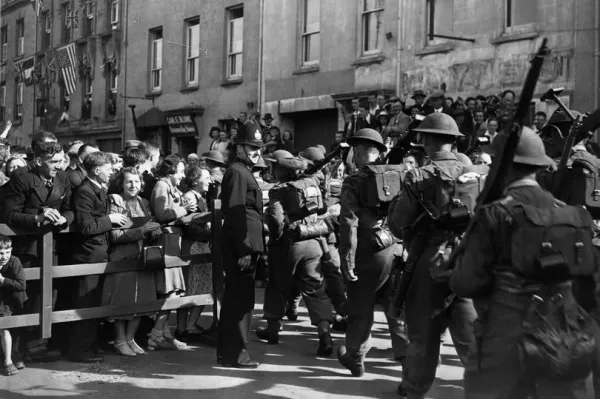
“I think it’s a thing that you don’t forget,” says Margaret Le Cocq, who aged five joined the impromptu march along St Peter Port’s seafront with their liberators to the town’s church. “I can see those soldiers, in their uniforms, throwing us sweets, so many people. It’s always stuck in my mind.
“I’d spent the morning at the harbour front, watching the boat coming in. We were too excited, jumping about. The adults had told us that the Germans would be going away because the war was ending. I was brought up in it so I didn’t know any different.
“People were celebrating into the early hours of the morning. But my uncle couldn’t join in the celebrating because he had lost so much weight that he was ill.”
David Luce was 12 when the British soldiers arrived at the next island to be liberated, Jersey. Now 91, he remembers “the excitement down here at the harbours, our soldiers were arriving in full kit and they could barely move because people were embracing them as they landed on the pier.
“They were throwing out cigarettes aunt sweets to the children… the air on Liberation Day was electric with joy.”
Every year since the day - a pubic holiday on Guernsey and Jersey and the islands’ national day - has been celebrated with music, dancing and re-enactments of the British soldiers landing. And this year will be bigger than ever, with parades, concerts, a two-day music festival and a sports competition, The Liberation Games, among many other events.
For many, though, memories of the exuberant end of the war have always been tinged with those of the terrible deprivation and hardship they suffered during German occupation.
Back in June 1940 as German forces surged through France, many still believed Hitler would spare the islands. But Hitler saw them as a stepping stone from which to invade Britain, as well as a useful propaganda tool, showing the Nazis occupied British land.
READ MORE:
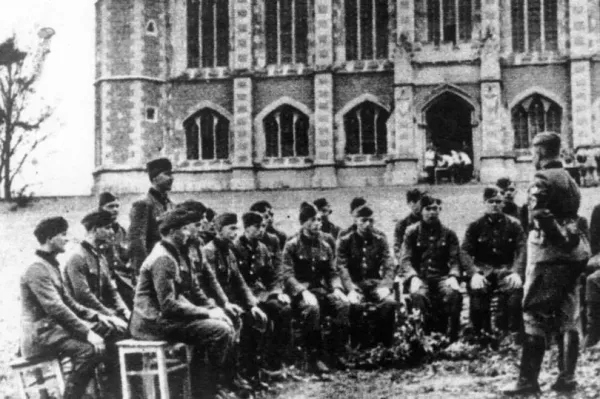
Winston Churchill also removed troops, deciding that the islands would one too difficult to defend, and allowing islanders to decide if they were to stay or evacuate to Britain. Around 25,000 residents - half the population of Guernsey and a fifth of the people of Jersey - took up the offer to leave.
For any still undecided by June 28, it was too late a squadron of German fighter planes, unaware that they had already been demilitarised, dropped bombs on the islands, killing 44 people.
Life changed quickly for the islanders, who would face five hard and hungry years, living under stilling rules and regulations, with transgressions harshly punished.
The currency was changed to the Reichsmark, cars had to drive on the right-hand side of the road, the clocks were changed to continental time and cinemas were only allowed to show German propaganda films. Radios - which would have allowed people to listen to broadcasts - were also banned, and anyone breaking the rules faced imprisonment, or deportation to Nazis prisons, labour camps and SS concentration camps.
One of those camps had been set up on the island of Alderney - the only Nazi death camp on British soil. Just 70 miles from Bournemouth, the Salt camp was as bad as any in occupied Europe, with inmates subjected to hard labour, torture, starvation and murder.
Victims included hundreds of French Jews transported from the notorious Drancy transit camp. More than 700 camp inmates lost their lives.
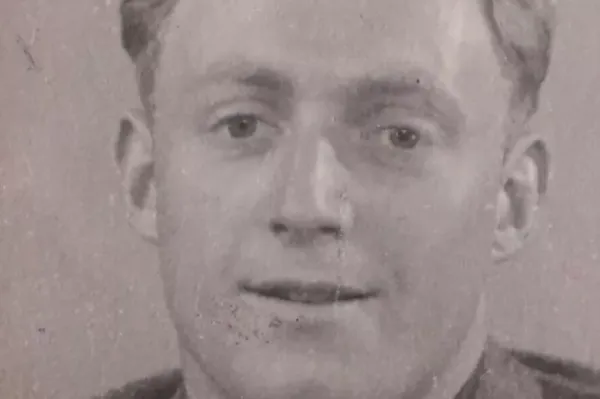
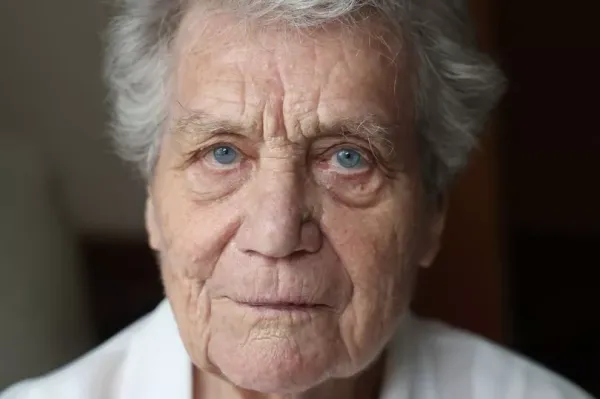
Gordon Prigent was among a handful of islanders who endured the death camp on Alderney. He was 15 when the Jersey was occupied, but aged 18 he was asked to paint the Germans’ tanks and refused, telling them he was a builder and not a painter.
The teenager was first sent to a forced labour camp, but while there he and another local, Walter Gallichan, were found listening to the BBC on an officer’s radio, and both were sent to the Slyt concentration camp as punishment.
His wife Iris told the that the experience left Gordon, who died in 1991, scarred for the rest of his life.
She says: “The Germans would get them up in the middle of the night and they had to stand to attention or be killed. That played on his mind for the rest of his life.
“One time Walter’s cabbages weren’t deemed to be evenly spaced so they hit him over his back with a shovel. Gordon went to pick him up and the Germans hit him so hard they knocked his front teeth out just for trying to help.
“Another time, one of the men asked for a second helping at breakfast. Gordon said they put him in a box, folded him and shut him inside and he died in the box. They told everyone, ‘This will happen to you if you do the same thing.’ After that Gordon never wasted a morsel of food, never, all his life.”
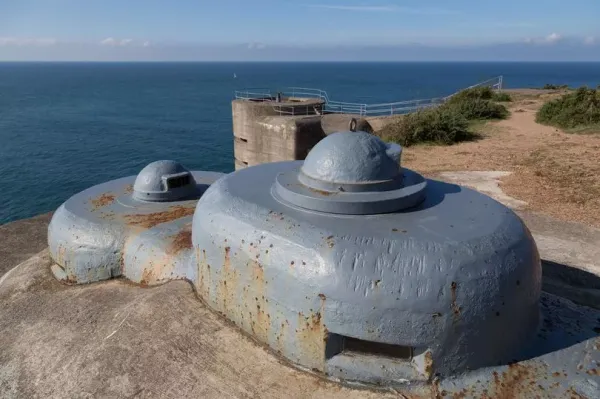
Even those on the islands who didn’t fall foul of the Germans were scarred by five years of hardships and brutality.
Severed from the rest of Britain, and with dwindling food supplies given first to the German occupiers, people suffered from hunger and malnutrition, especially during the last year of the war when the population were on the brink of starvation. People resorted to making tea from dried bramble leaves and coffee from acorns.
Many people also lost their homes, boats, furniture and cars after they were confiscated by the Germans, while every aspect of their lives was heavily controlled and censored, with restrictions put in place to limit , drinking, meeting with more than three people, and access to the islands’ famous beaches.
Evening curfews were also imposed and the display of patriotic signs or singing of songs were banned.
Perhaps the worse moment was when 2,300 Channel Islanders were forcibly deported in September 1942 and February 1943, on the direct instructions of Adolf Hitler, in retaliation for Britain having deported 800 German civilians from Iran. Most were sent to internment camps in Germany, where 45 would die before the war ended.
But despite living in fear for their lives, there were also some brave acts of resistance and sabotage.
In July 1941, islanders joined in Winston Churchill’s ‘V’ sign campaign, daubing the letter V - for victory - over German swastikas. One offender, Xavier de Guillebon, who chalked ’V’ on German cycle seats, received a year’s imprisonment in Germany as punishment.
David Peck remembered how his grandfather, a stone mason, carved a ‘V’ in the Royal Square in Jersey’s Saint Helier.
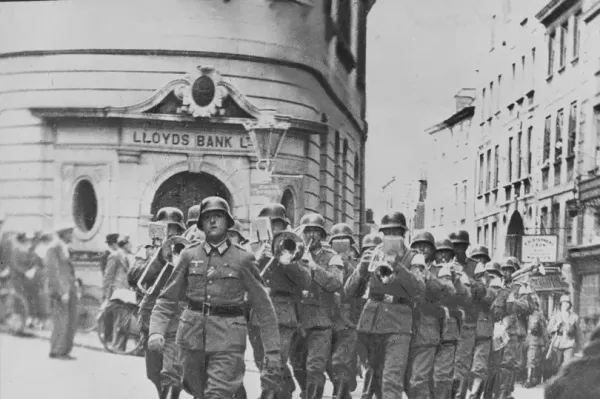
“He used to have a little hand cart which he used to have to sort of cover the V over with sand at the end of the day so the Germans didn’t notice,” he said. “At the bottom of the hand car he had wireless sets he used to deliver to people. If the Germans would have found that, you wouldn’t be speaking to me today.”
Perhaps one of the longest running acts of sabotage was by Charles Roche, who the Germans had kept on as the civilian controller of Jersey Airport. He was credited with causing at least 28 German aircraft to crash land between 1940 and September 1942, when he was sent to an internment camp.
Another famous islander was Marie Ozanne, a major in The Salvation Army who publicly protested about the Germans’ treatment of Jews, slave labourers and local people, and refused to stop preaching in the street in defiance of the Commandant’s orders. In September 1942 she was arrested and imprisoned for several weeks, and after her release fell ill and died.
Conditions worsened after D-Day, with the islands cut off from both Britain and France, and more desperate people tried to escape on boats. Some drowned, some were recaptured and imprisoned and one 21-year-old was shot and killed on the beach.
The day many had feared would never arrived finally came on May 9, 1945, a day after Churchill’s famous VE Day speech in which he said: “Our dear Channel Islands will be free tomorrow. Hostilities will end officially at one minute after midnight tonight”.
In fact the German authorities had informed the population that morning that the war was over, and by the time Allied forces landed at St Peter Port the islands were already awash in red, white and blue.
For some, like five-year-old Margaret Le Cocq, occupation was all she knew, and as life began to get back to normal again even the most basic things were novelties.
She recalls: “I knew what baked cabbage was, it was horrible, but I didn’t know what bread was. It was very very strange to see that, but it was nice.”









